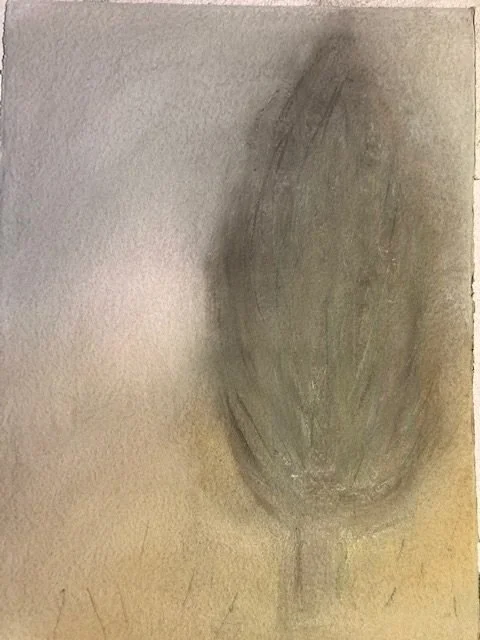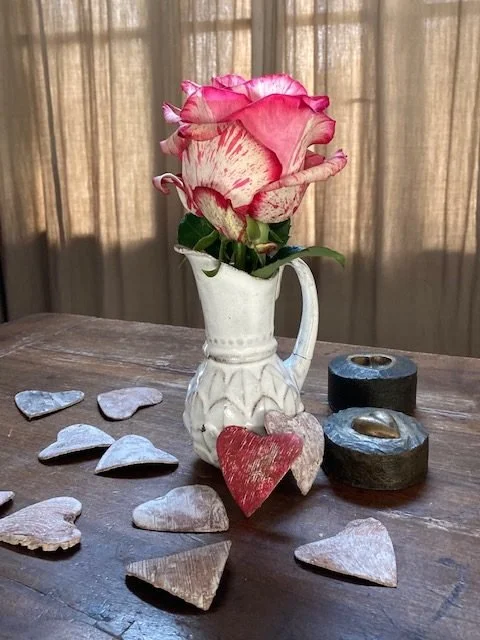PARTIALLY RESTORED
In 1995, in my final semester of studying for an MFA in Creative Writing, I was working on my critical thesis. To say I found it daunting is an understatement. My creative thesis was well under way and I felt confident of its worth and excited that as a result of breaking my neck and therefore losing my prior creative life, I had discovered another avenue of creative expression that I had no idea I had in me. Stories poured out as if they had been impatiently waiting to be told. People and places seemingly invented themselves, using me as the vehicle for their manifestation.
Then came the semester of the critical theses, as if designed to prove I was, after all, the dumb blonde I’d believed myself to be since early school days. Now I was in academia; I who had left school at 15 was now, age 48 at that time, right back in the misconception of my intellectual paucity and I really wanted to just quit the whole thing. The pain of feeling inferior, inadequate, of not belonging, was overwhelming. However, the professor helped me see that the topic of my thesis was right in front of me and he also provided me with a technique that enabled me to structure the whole thing. I will say that the thesis, “Stories That Take Place In A Room,” was original and interesting. I won’t pretend that I brought academic chops to it but it was good enough for a pass and as I handed it in to the professor I felt proud of my accomplishment. Then he said something that completely undid me. “You know,” he said, “You’d be really good at the personal essay.” This, coming from a scholar with a Phd in Jacobean Theatre – among other literary degrees – I took as proof that, as a writer, I was a light weight.
Why am I telling you this? Because for nearly 10 years I have been writing personal essays for this blog (a lightweight word if ever there was one) during which time I’ve tried to incorporate my thoughts and feelings in a way that connects with the universal. What I’ve come to realise in the last few weeks is that I also have a need to provide comfort and encouragement to others. So I have felt blocked from writing since the last post – in January – because I felt unable to access comfort or encouragement for myself, let alone anyone else.
Shame. What a crippling thing that is when we heap it on ourselves. I have felt, in the past month, shame, inadequacy, negativity, hopelessness, depression and displacement. Yes, certainly, threaded through all of that have been moments of gratitude…causing more shame. What right did I have to feel so hopeless? Even as I write these last couple of paragraphs I feel mortified. Why, I ask myself, at a time like this, would anyone want to read this? And as soon as I ask that question I begin to see the connection to the universal.
We’re a year into the pandemic. For a year we’ve dealt with fear and loss: loss of our way of life; loss of loved ones; loss of work, homes, hugs. Over and over again we’ve braved it. Over and over again we’ve believed our governments when they told us it was under control; masks weren’t important; it’ll all be over by summer – last summer; no more lockdown, go eat in restaurants, sure you can have a normal Christmas. Up and down, up and down. And then, finally, the vaccine is here and all will be well….but not for another year.
This ongoing journey of hope followed by disappointment leaves us bereft of the former and in constant anticipation of the latter, so that we now, understandably, project negatively into the future. This leaves us turned inward, looking to ourselves to be enough to withstand the long trek through the remainder of a tunnel the distance of which we cannot measure.
Well, we aren’t always enough. Like everyone I have been feeling displaced and disconnected. For a few weeks this frightened me. Surely I could find the solution that would allow me to have a sense of purpose? (Apologies, but as a feminist I do not find being a housewife to have any meaningful purpose other than needing to live in a clean and tidy house.) The truth is that the only connection I have with the outside world now is through this blog and even that is ephemeral in that - apart from friends - I have no idea who reads it.
The more I hammered away at myself demanding that I solve the problem the more I failed and thereby became even more diminished. I cried a lot. And then my computer died. And then my iPhone died. The computer took 2 weeks to be partially restored. The new iPhone took a week to get its shit together, during which time my iPad started to fail. Was this a message? Was I to believe I was meant to be completely disconnected from the world? Could it be I maybe even wanted to be? The answer is no, and no. But something happened during the weeks of digital disconnect and the ensuing madness of trying to fix it. I began to accept that I can’t fix everything – least of all myself. I am who I am. And who I am is at the mercy of a pandemic. I can’t be with my family in America. I can’t turn home to England. I can’t find my way right now. So I am becoming still. It’s not easy, but I’m turning the wheel into the skid.
I’m writing to you today because I have found the courage to be honest. Unlike fiction which, at its best, gives the illusion of reality, the personal essay at its best is the honest exploration of reality. It offer both writer and reader the chance to stare at the beauty and brutality of existence and the possibility of accepting, honouring and having compassion for our fallibility, our vulnerability, our fears, avoidance and endeavour. At its best the personal essay reaches into the writer and out to the reader giving us all pause for thought and once in a while connects us to each other and our common need for acceptance and love.
To all you lovely people who take the time to read my essays I offer my gratitude. And on this Valentine’s Day I offer you my love.
Maggie

